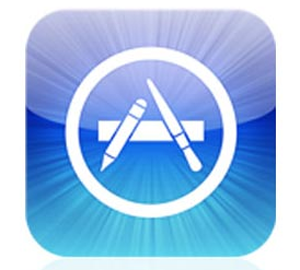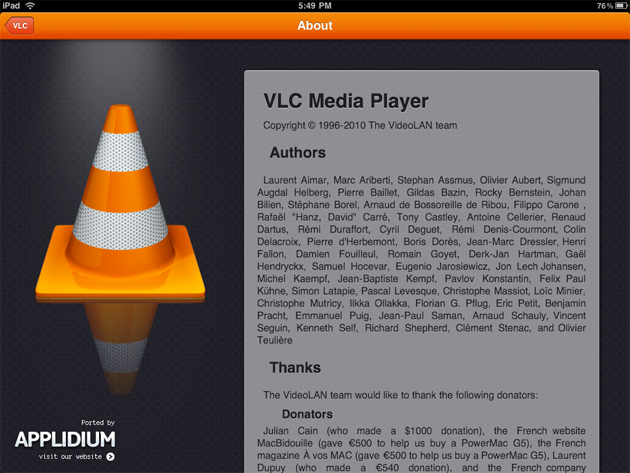 Good news for people who think outside the iTunes box, multimedia player VLC hit the Apple store today, meaning you can now play AVI and Quicktime movies without having to convert them to iTunes, and also meaning that the app will presumably be taking at least some eyeball traffic away from the iTunes store. Does this generous decision on behalf of Apple mean that the kinder gentle App store is here to stay?
Good news for people who think outside the iTunes box, multimedia player VLC hit the Apple store today, meaning you can now play AVI and Quicktime movies without having to convert them to iTunes, and also meaning that the app will presumably be taking at least some eyeball traffic away from the iTunes store. Does this generous decision on behalf of Apple mean that the kinder gentle App store is here to stay?
Yes, the same app store that approved Google Voice and Opera is now giving the thumbs up on an open source multimedia player, an odd reversal from the strict polices of the app store of yesteryear. On September 9th Apple released a series of guidelines making clear what is and isn’t allowed (“no fart apps”), and told developers it would consider apps built using whatever languages they wanted including Flash and Java. And it looks like it’s keeping it’s word.
Since the closed iTunes media platform is at the crux of Apple’s business model, the fact that an app would get approved that allows you to upload non-Apple compatible files to your iPad it seems counterintuitive when considering how viciously Apple has treated apps that were even slightly competitive in the past.
But this recent chain of approvals are signs a less greedy Apple is going easier on what constitutes “duplication of functionality.” What’s next, Bittorrent on the iPad?
To Apple developers the VLC approval is as symbolic as Google Voice was a couple of days ago. You can’t get more open than the free VLC which comes with a bunch of Codecs so you can basically play anything, and is open source meaning that developers can build on top of it. Giddy off of their newfound Apple seal of approval, Apptitudes, the company behind the app, holds that they plan on making an iPhone version soon.
So what happened that made Apple change their tune with regards to App Store approval policy? No one quite knows. One theory I’ve heard is governmental intervention on what were viewed by many to be monopolistic tendencies. In any case, get ready for a new App store era.
The statement that started it all, below:
CUPERTINO, Calif.–(BUSINESS WIRE)–The App Store℠ has revolutionized the way mobile applications are developed and distributed. With over 250,000 apps and 6.5 billion downloads, the App Store has become the world’s largest mobile application platform and App Store developers have earned over one billion dollars from the sales of their apps.
We are continually trying to make the App Store even better. We have listened to our developers and taken much of their feedback to heart. Based on their input, today we are making some important changes to our iOS Developer Program license in sections 3.3.1, 3.3.2 and 3.3.9 to relax some restrictions we put in place earlier this year.
In particular, we are relaxing all restrictions on the development tools used to create iOS apps, as long as the resulting apps do not download any code. This should give developers the flexibility they want, while preserving the security we need.
In addition, for the first time we are publishing the App Store Review Guidelines to help developers understand how we review submitted apps. We hope it will make us more transparent and help our developers create even more successful apps for the App Store.
The App Store is perhaps the most important milestone in the history of mobile software. Working together with our developers, we will continue to surprise and delight our users with innovative mobile apps.
